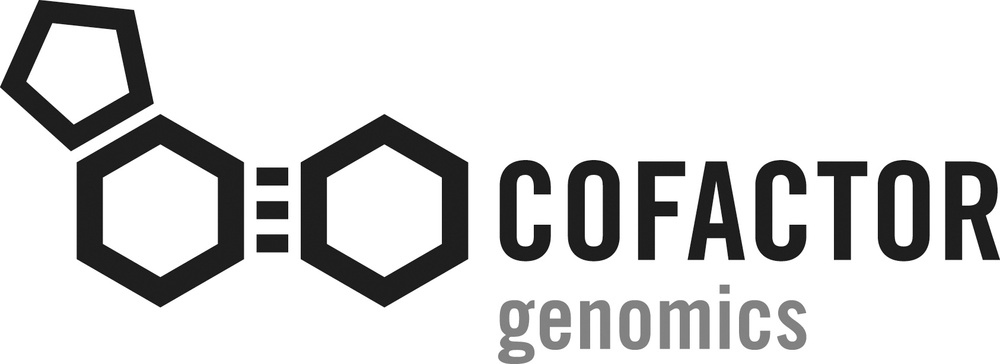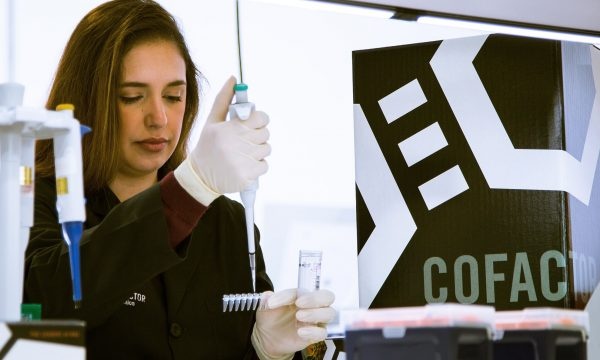--Application of RNA-Based Solid Tumor Immune Profiling to Sarcoma Will be Presented at Molecular Med TriCon--
SAN FRANCISCO, Feb. 08, 2018 -- Cofactor Genomics, a clinical RNA sequencing and translational assay developer, announced today the commercial launch of Paragon, a solid tumor immune-profiling assay requiring only two FFPE (formalin-fixed paraffin-embedded) tissue sections for analysis. Powered by a proprietary database of immune reference signatures, the assay is designed to be cancer type-agnostic and can accommodate any solid tumor specimen, with expression databases pre-built for more than 25 different cancer types.
“Building on data from thousands of RNA expression profiles and years of technology development, the Paragon molecular profiling platform offers a unique look into an oncology patient’s immune profile far beyond traditional ‘hot’ or ‘cold’ classification,” said Jarret Glasscock, PhD, Founder and CEO. “Clinicians and researchers who have been dependent on qualitative, generic characterization from disparate assays such as immunohistochemistry, flow cytometry or expression arrays now have the ability to interrogate nearly all clinical specimens with a sensitivity and specificity previously unattainable. Cofactor Paragon is an invaluable tool to help advance precision medicine.”
The company also announced the presentation of a study demonstrating the clinical application of the Paragon assay to generate the immune-specific molecular profile of a solid tumor at the Molecular Medicine Tri-Conference taking place in San Francisco from February 11 – 16, 2018. Dr. Seth Pollack, MD, Assistant Member, Fred Hutchinson Cancer Research Center, will present his findings, entitled, “Profiling the Changing Immune Infiltrates During Neoadjuvant Therapy for Soft-Tissue Sarcomas,” in the Immune-Oncology track on Monday, February 12. Dr. Pollack’s presentation will focus on the value of generating a molecular profile of sarcomas to better understand the changing immune tumor microenvironment (TME) in soft tissue sarcoma during neoadjuvant therapy.
More Insights, Less Tissue
Paragon enables solid tumor immune profiles in challenging clinical samples previously inaccessible by immunohistochemistry or flow cytometry and improved biological insights for immune-oncology. At the heart of Paragon are robust molecular enrichment technologies, Cofactor’s unique computational RNA profiling technology, and a profile database which provides valuable context for each sample processed through the Paragon assay. Requiring only two FFPE samples, the assay differentiates, with high confidence, cells such as M1 and M2 macrophages and Tregs, shown to play an important role in tumor progression and immune system modulation, simultaneously reporting cancer-specific expression signals from escape genes including PD-1, PD-L1, and CTLA4. Cofactor Paragon’s high throughput characterization enables the discovery of new biomarkers and improves patient selection when transitioning from translational to clinical research applications.
Drug discovery companies and clinical researchers who submit fresh, frozen or FFPE samples to Cofactor’s laboratory for analysis receive an easy-to-interpret, fully-analyzed data set highlighting relevant immune escape genes and immune cell profiles. Cofactor Genomics’ laboratory is one of only a few that are CAP/CLIA-certified for RNA-sequencing based assays.
Cofactor has initiated collaborations to demonstrate the utility of the assay by partnering with multiple clinical research centers. In addition to presenting at Molecular Med Tri-Con,Cofactor and its collaborators also will present results of validation and early clinical studies at the Immuno-Oncology 360° meeting and MnM Biomarkers Conference.
About Cofactor Genomics
Cofactor Genomics uses RNA to help researchers and clinicians understand, diagnose, and predict drug response for the 95% of disease that can’t be assessed by DNA alone. Founded by three former Human Genome Project scientists, Cofactor has built a proprietary platform capable of overcoming the chemical and computational challenges of performing complex RNA fingerprint analysis on clinical-grade human samples. Cofactor has contracts to provide RNA sequencing and analysis services to the research arms of eight of the world’s largest pharma and biotech companies and is in the process of commercializing a suite of clinical diagnostic assays targeting oncologic, immunologic, and neurodegenerative diseases. In 2017, Cofactor closed $18M in financing led by Menlo Ventures with major participation from existing investor Data Collective (DCVC) and new investor Ascension Ventures, and participation from existing and new investors iSelect, Y Combinator, Wilson Sonsini Goodrich & Rosati and Stanford. At the same time, the company welcomed Mark Siegel (Menlo Ventures), Matt Ocko (DCVC), and John Kuelper (Ascension Ventures) to its Board of Directors. Find out more about Cofactor Genomics at cofactorgenomics.com. For more information, contact: info@cofactorgenomics.com


